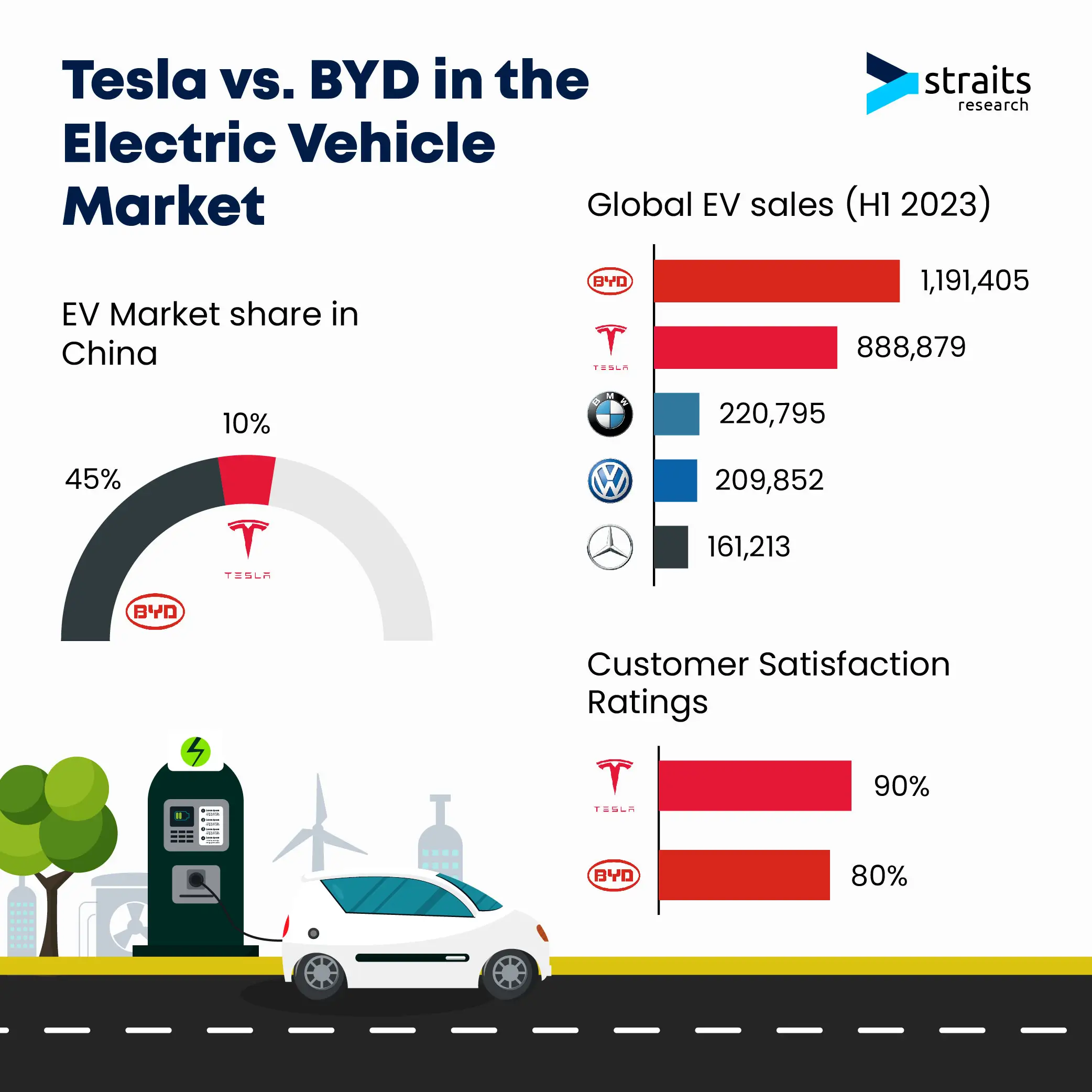BYD Challenges Tesla’s Dominance Globally

IAA Mobility 2023 aims to be a battleground where the future of mobility takes center stage in the automobile industry. The expo this year has a wide range of exhibitors, including both established German legacy car brands and Chinese manufacturers competing to dominate the electric vehicle sector.
Tesla Vs BYD
Volkswagen, Mercedes, and BMW are all making progress toward an electric future, but are lagging behind China’s EV manufacturers. The shift to electric vehicles is somewhat of a balancing act due to the difficulty of simultaneously working on internal combustion engines. Chinese producers like BYD have distinguished themselves as front-runners in the competition for leadership in the electric vehicle market. BYD isn’t just competing but is also leading the field. A sustainable cost advantage of about 25% over its legacy competitors is one of its primary advantages. With its price recently reduced to under $30,000, BYD’s seal-battery electric car embodies this threat to the rest of the market.
The excellent results of BYD also include its profitability. Tesla, a pioneer in the field of electric vehicles, has kept up a strong presence but BYD has outperformed even Tesla. BYD sold approximately 1,191,405 plug-in hybrid and electric vehicles in the first half of 2023, more than doubling the combined sales of BMW (220,795), Volkswagen (209,852), Mercedes (165,213), while Tesla sold 888,879 Evs. BYD has its eyes set on dominating the European market, which will make things worse for the major German automakers. BYD sold 92,469 EVs abroad between January and July, exceeding this year’s total sales of 2022.
Customer satisfaction and market capitalization
With a market share of 21.7% in the second quarter of 2023, Tesla remained the top EV producer, closely followed by BYD at 16.2%. Together, Tesla and BYD represented almost 40% of all global new battery electric vehicle sales. Moreover, Tesla presently owns a solid 10% market share in China’s electric vehicle sector, while BYD currently holds a commanding 45% share.
The tactics employed by BYD and Tesla differ significantly from one another. While Tesla has maintained an EV-only policy, which has given it a clear retention edge, BYD has a wider selection of electric vehicles, including several cheaper versions. Tesla continues to be the market leader in terms of market capitalization. The market value of the business reflects the enormous investor trust it has.
Another important factor to take into account is customer satisfaction. Tesla ranked high in this category and boasted an astonishing 90% overall satisfaction rating. BYD, on the other hand, has a satisfaction rating of 80%. Despite the fact that Tesla and BYD presently lead the global electric vehicle industry, both businesses nevertheless face obstacles. As cheaper electric vehicles join the market, Tesla’s share is estimated to drop from its peak of over 70% in 2021 to the “low teens” by 2025. BYD, meanwhile, is a formidable player to watch because of affordable prices.
The competition for the leadership in the electric vehicle market is heating up. Market dynamics, developments, and customer loyalty will be necessary factors in choosing the leader in this competition for the future of mobility as the sector develops.




